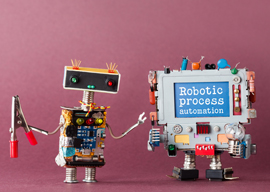
June 29, 2017

Source: Bigstock
With automation continuing to replace jobs we once took for granted, is the future of work just a long slog until we put ourselves out of business?
Artificial intelligence notwithstanding, the coming automation economy may not be the dreary dystopia dreamed up by fiction novelists. A new workforce of computer-savvy desk creatures is not our kismet, despite the wishes of some of our leaders.
“Today, the rapid shrinking of the industrial sector means that most of us have jobs requiring emotional skills,” notes journalist Livia Gershon in Aeon magazine. The “emotionally demanding work” will still entail physical effort, but it won”t require the cognitive-heavy technical know-how few can master.
And here’s the hopeful part: The rise of jobs requiring empathy and ardor will be more fitting for working-class people than for educated elites. Consider: Who is in a better position to work effectively with others? A man or woman who grew up in public schools and was forced to navigate choppy social waters without the backstop of wealth? Or a person cosseted by nannies and educated through private means?
That vision may be overly rosy, but it makes sense when you consider the cold, unbending nature of machines. Computers can”t replace the warmth of real-life caregivers. And no amount of college education or technical training can be a substitute for what Gershon calls the “non-academic skills needed to calm a terrified child or maintain composure around a woman playing with her own faeces.”
That should give solace to the growing number of people cut off from the digital economy. In commenting on small-business owners struggling to compete with megacorporations, the poet and conservationist Wendell Berry described the ongoing bouts as “lonely battles to preserve things of value that they cannot bear to lose.”
To lose one’s purpose in life is to lose everything. An occupation is a small but crucial part of what makes a person whole. And it’s a small comfort to know that work in the near future will rely on what Tom Smykowski in Office Space angrily described as “people skills,” absent the violent outburst.
For the technologically incapable, there may be a chance.